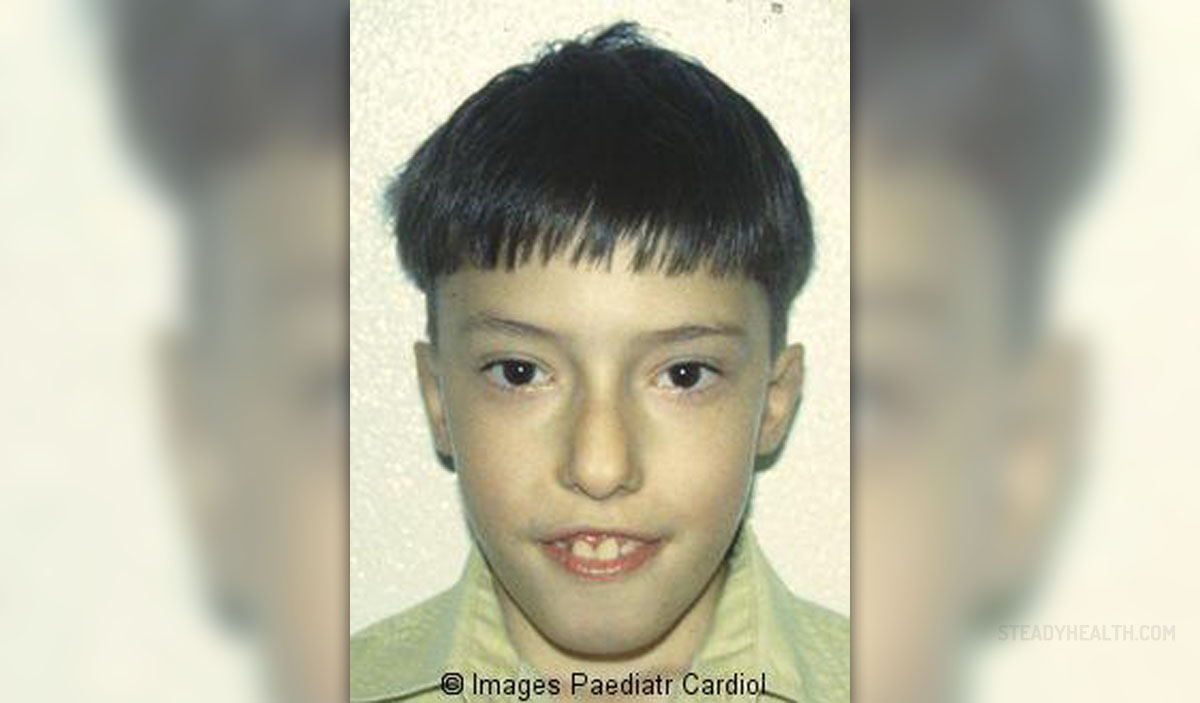Prader-Willi syndrome is a genetic disorder that affects both males and females and results from damage to chromosome 15. Namely, in such individuals there is deletion or disruption of genes in the proximal arm of this chromosome. The disorder also develops due to maternal disomy in the proximal arms of the 15th chromosome.
Main characteristics of Prader-Willi syndrome are reduced fetal activity (when the baby is still in the womb), obesity, hypotonia and mental retardation.
Gene Impairment Causes Prader-Willi Syndrome
As far as pathophysiology is concerned, this genetic disorder is caused by genomic imprinting. This means that genes patients have are expressed differently depending on the parent of origin. In patients suffering from this genetic disorder there is identifiable loss of imprinted genomic material of the paternal 15q11.2-13 locus.
Although many times the affected gene are damaged by deletion and unbalanced translocation, there are cases when the condition develops as a result of maternal disomy. It is estimated that around 70% of patients develop Prader-Willi syndrome due to deletion of band 15q11-13 on the chromosome 15. Maternal (uniparental) disomy is blamed for the occurrence of syndrome in approximately 28% of all cases. Finally, there is 1% of patients in whom the mutations to the imprinting center are isolated.
The syndrome is, fortunately, sporadic. Some American experts have estimated that Prader-Willi syndrome affects 1 out of 16,062 population, while others say that the syndrome is characterized by the prevalence rate of 1 per 25,000 individuals. As for the rest of the world in rural Sweden the condition affects 1 out of 8000 individuals while in Japan there is 1 case per 16,000 people. This gives insight into different distribution of gene impairment.
- Intellectual level is linked to planning deficits in Prader-Willi Syndrome.
- Better knowledge on planning deficits in Prader-Willi Syndrome helps identify rehabilitation axes.
- A modified version of the Zoo Map from the Behavioural Assessment of the Dysexecutive Syndrome was used in three groups: a group of adults with PWS in comparison with two groups both matched on chronological age, one with typical development (TD) and one with intellectual disability (ID).
- Compared to TD adults, both adults with PWS and ID showed increased planning time and lower raw scores on the planning task. The execution time and the number of errors were higher in the PWS group compared to the comparison groups. All three groups performed worse in the non-food condition only for number of errors and raw score.
Effects of Prader-Willi on Adults
There are many symptoms and signs that point to the presence of Prader-Willi syndrome. Some of them are present at birth while others become noticeable during childhood, adolescence or even once the patients enter their adulthood.
It is also possible to detect the syndrome while the baby is still in the mother's uterus. In such case there is noticeably diminished fetal movement, abnormal fetal position and sometimes doctors reveal polyhydramnios (the medical term for excess of amniotic fluid ).
Furthermore, many times the birth of such babies occurs in a breech position or mothers must undergo cesarean section due of abnormal fetal position. At birth doctors may confirm the presence of lethargy, hypotonia, difficulties establishing respiration and feeding difficulties. Poor muscle tone is basically blamed for inability of the baby to feed on mother's milk. Hypogonadism is also present at birth. In infancy such children fail to thrive and there are delayed milestones along with intellectual delay. Such babies sleep too much. Scoliosis and strabismus occur as well.
During childhood children suffering from Prader-Willi syndrome have problems with speech (speech delay), their physical condition is poor and they have to deal with sleep disorders. What is typical for this period is the onset of hyperphagia (over-eating). Excess intake of food subsequently leads to obesity, another typical characteristic of the syndrome. If scoliosis has not developed during infancy, it will definitely occur during childhood.
In adolescence these patients face delayed puberty, remain obese and show signs of extreme flexibility. They are typically short-statured.
In adulthood Prader-Willi patients remain obese, suffer from hypogonadism and, as a result, become infertile. Hypotonia is also present along with extreme flexibility. These patients are prone to diabetes and they suffer from a variety of learning disabilities. Borderline intellectual functioning is reported in almost each and every patient. What is more, these individuals are also prone to delayed motor development.
When it comes to general physical appearance of such patients, they have prominent nasal bridge, small hands/feet, tapered fingers, rather sensitive skin susceptible to bruises, and excess fat in the central portion of the body. Their forehead is high and narrow, and eyes almond shaped.
As mentioned earlier Prader-Willi syndrome patients are at risk of developing learning and attention disorders. It is estimated that around 40% of them have borderline i.e. low average intelligence. On the other hand, their cognitive profile is extraordinary. For instance, visual organization and perception of such individuals may be impeccable. Their reading and vocabulary appropriately developed. Spoken language is, however, much poorer compared to comprehension.
Among many behavioral changes Prader-Willi syndrome patients develop, insatiable appetite and hyperphagia are the ones blamed for morbid obesity. Although the exact cause of such changes has not been identified yet, experts believe that damage to the chromosome 15 disrupts the normal functioning of the hypothalamus and interferes with appetite. Furthermore, there may be compulsive behavior and anxiety while only small number of patients develop hallucinations, paranoia and depression.
Finally, endocrine disorders these people frequently deal with include growth hormone deficiency, reduced total energy expenditure and hypogonadism. This is the reason why patients suffering from Prader-Willi syndrome require specific hormone replacement therapy.


















Your thoughts on this
Loading...